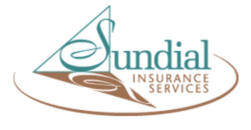
For many people, a home is their biggest investment—and the mortgage that accompanies it their largest financial commitment. However, it may not be one they should eliminate—at least according to the experts. When the gurus wax poetic about eliminating debts, they are generally speaking of high-interest obligations such as credit cards with APRs around 13 percent, not 30-year mortgages with interest closer to 4 percent.
That said, in an uncertain economy, mortgage debt becomes more of a worry—especially if you’re nearing retirement or work in a volatile industry. Monthly payments of any size are always harder to make after you stop receiving paychecks. While the current residential mortgage delinquency rate of 5.35 is much lower than the peak of 11.27 in first quarter 2010, it’s still significantly higher than the 1.95 delinquency rate in fourth quarter 2006 before the last recession began.
So what’s the smartest move? Should you use every spare penny you can rustle up to pay down your mortgage balance or sock it away in savings and investments for retirement? It really depends on your personal financial situation.
Credit card debt is a burden
If your balances have crept up, and you’re making hefty payments on high-interest debt every month, it makes better financial sense to pay off your credit cards before you start chipping away at a bigger piece of your mortgage each month. Interest on credit card debt isn’t tax deductible; your mortgage interest is.
You have an IRA or 401(k)
Depending on the type of tax-favored retirement account you have, your contributions will result in a deduction on your current taxes or tax-free accumulated gains. Either way, it makes financial sense to put extra money towards your maximum retirement contribution before you begin paying down your mortgage at a faster pace.
You’re ready to retire
While it would be nice to be free of your mortgage payment before you collect your final paycheck, putting all your spare dollars into early payoff may leave you house-rich and cash-poor. You don’t want to find yourself in a situation where you’ve depleted your savings to the point where it’s difficult to cover necessities like food and fuel.
Once you’ve reduced your credit card debt and have maximized your tax-favored retirement account, there’s one more alternative use of your money to consider before prepaying your mortgage: market investments. Historically, stock-owning mutual funds with reinvested dividends have returned much higher earnings than the 4 percent you may be paying on your mortgage. Sock extra cash away there and you very well may come out ahead.
If you’d like to discuss the merits of paying off your mortgage further, consult your financial professional. And if your current home loan has an interest rate higher than 4 percent, contact your mortgage advisor to discuss your current refinancing options. A lower rate and a shorter term could help you become mortgage-free faster.


